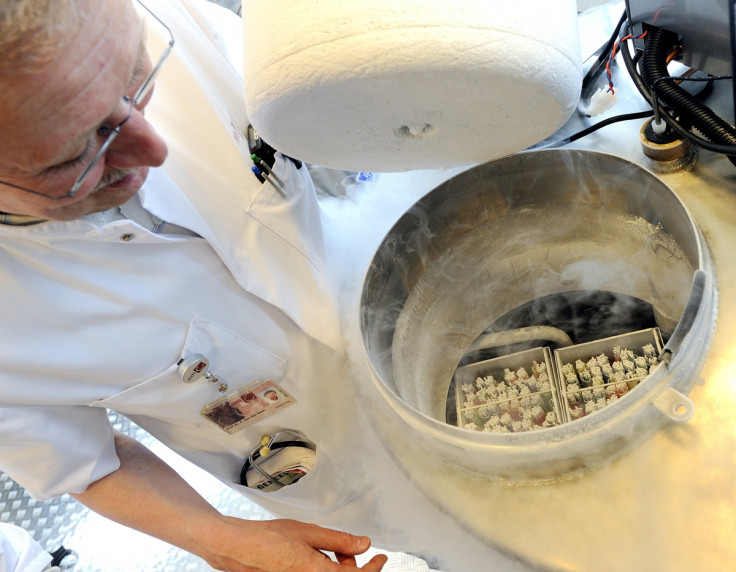Delaying Motherhood: Nine out of Ten Women Support Putting "Eggs on Ice" for Career

Around 90% of women believe it is acceptable to freeze their eggs for career reasons or to give them more time to find the right partner, according to a new survey.
Of a poll of almost 1,000 women from the UK and Denmark, 99% said they approved of the procedure in medical cases, such as preserving fertility ahead of cancer treatment.
As many as 89.1% said they considered it acceptable to undergo Oocyte cryopreservation, a technology in which a woman's eggs are extracted, frozen and stored, for social reasons - such as the lack of a partner or a desire to further their career.
However, the European Society of Human Reproduction and Embryology survey showed just one-in-five women would actively consider the procedure themselves.
Of those, 74% said they might consider doing so if they had not found a partner by the age of 35, while 29% said they may if they thought having children would harm their career.
A British doctor involved in the study said she believed that, as the practice becomes more common, an increasing number of women would be likely to use the method to delay motherhood, so they could focus on work.
"I think these methods are going to change the future of the workforce, in terms of the female workforce, as it allows women to have children in their late 30s. It means women will be able to educate themselves, go to university and have a full career," said Dr Camille Lallemant of the Complete Fertility Centre of Princess Anne Hospital, told The Telegraph.
The questionnaire, which was accessible online, was completed by 973 anonymous women from the UK and Denmark.
The median age of the respondents was 31 years and the survey was completed during the 12 months from September 2012.
Researchers involved in the study said the women who would actively consider egg freezing were less concerned about its risks than the chances of success. Cost and safety of the procedure for future children were not identified as significant factors in the decision.
In the UK, records show that around 18,000 eggs have been stored in the UK from December 2012, including those frozen for medical reasons.
So far, frozen eggs have been transferred to women in around 160 cycles, which has resulted in around 20 live births.
Those with a history of infertility were also more likely to consider the procedure, the survey found. It is understood that women with a family history of early menopause have an interest in fertility preservation, in the likelihood that their eggs are depleted at an early age.
In a similar study, The Age revealed that of around 150 women who have frozen their eggs at a Melbourne IVF clinic over the past 15 years, only 15 women have returned to use them.
John McBain, the director of the facility, said egg freezing had long been an option for women wanting to preserve their fertility ahead of cancer treatment, but it was now becoming more common for "social reasons".
© Copyright IBTimes 2025. All rights reserved.






















